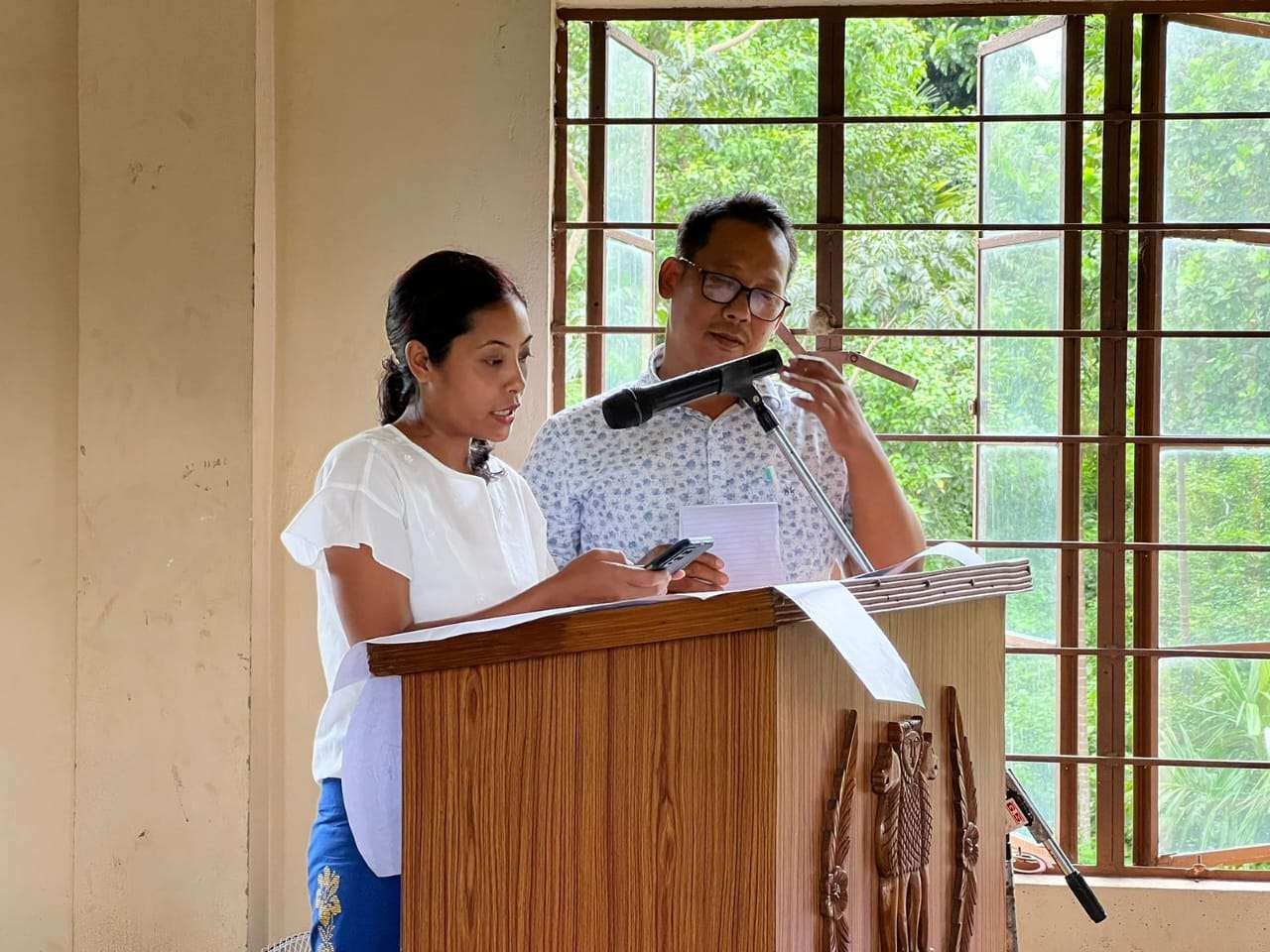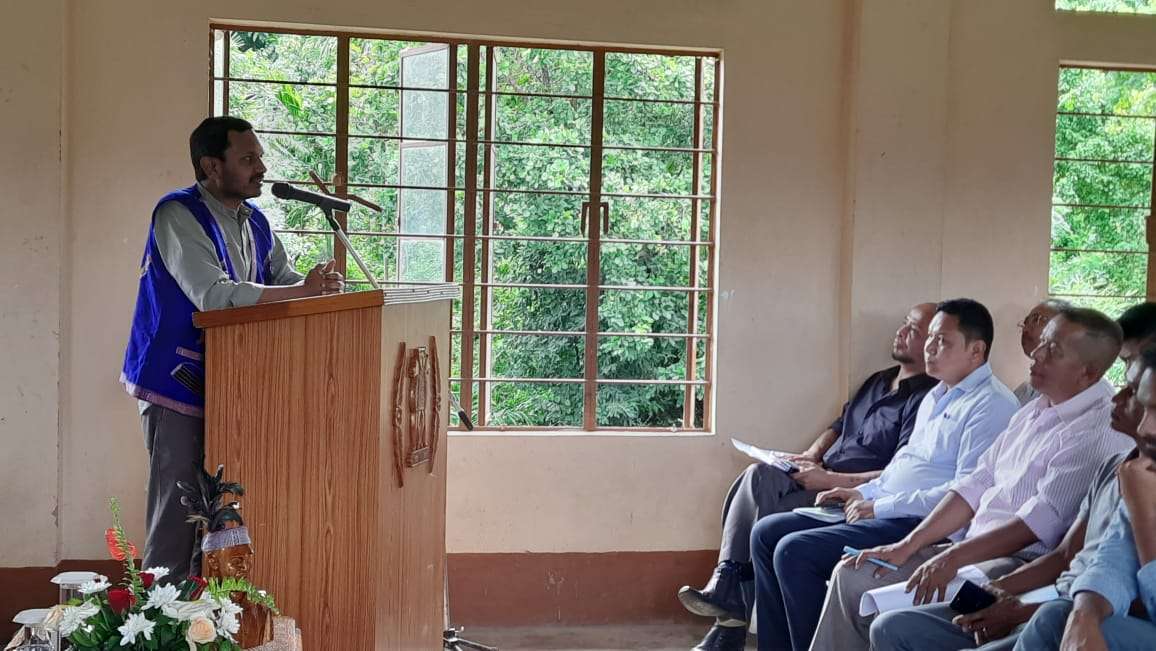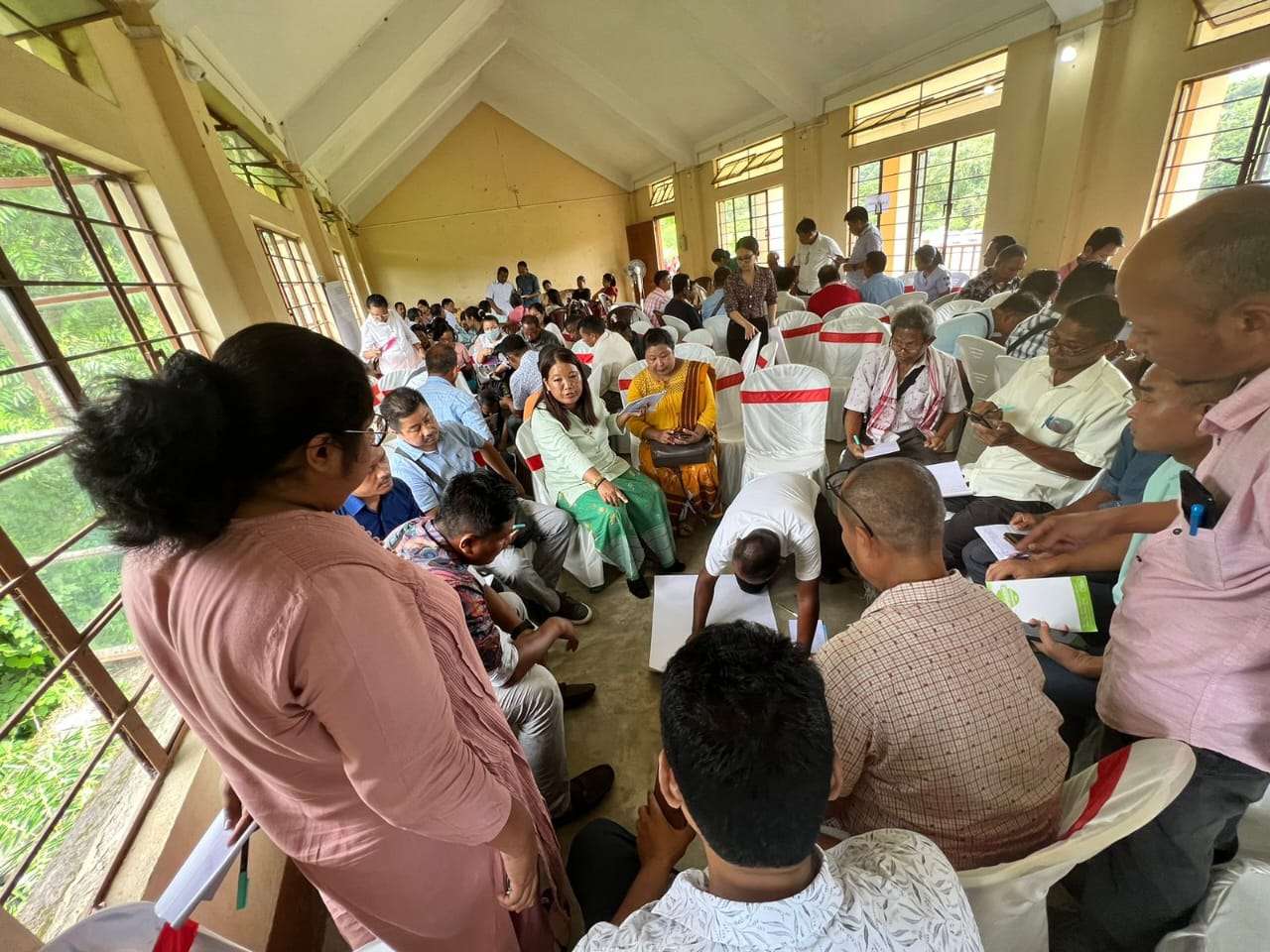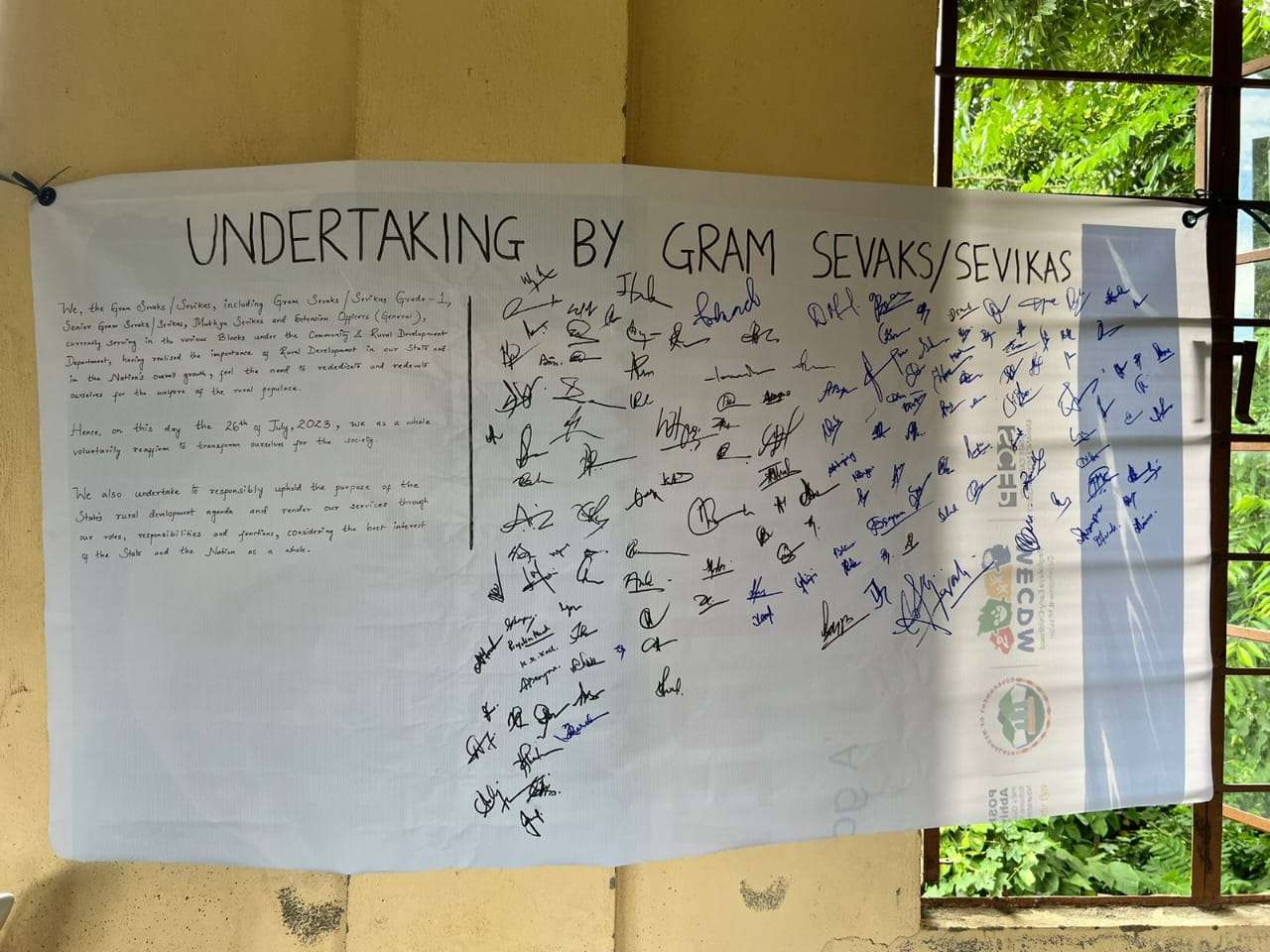Tura, July 28: In a one-day transformation workshop, about 200 Gram Sevaks and Sevikas from the Garo Hills region of Meghalaya participated and pledged to transform the rural development sector of the State.
On the request of the All Garo Hills Gram Sevak and Sevika’s Association (AGHGSA), the Community and Rural Development Department, Government of Meghalaya in collaboration with State Institute of Rural Development (SIRD), Meghalaya State Capability Enhancement Project (SCEP) and AGHGSA, on Wednesday, conducted the first ever one-day workshop on Transformation for Gram Sevak and Sevikas of Garo Hills region, at Asananggre under Rongram Community and Rural Development Block, West Garo Hills district.

Also, this is for the first time that such workshop was conducted, setting an example to transform the development process by taking due ownership and responsibility of the transformation process and by prioritising their purpose.
Similar workshops are also scheduled to be held in Khasi and Jaintia Hills regions of the State soon.

During the workshop, all Gram Sevak and Sevikas also signed an undertaking, reaffirming their role in rural development. Group discussions were conducted to facilitate thought-sharing, and to hear the Gram Sevaks’/Sevikas’ perspectives about their role, challenges and long-term expectations. An online survey was also conducted during the workshop, to understand the current role and responsibilities of the Gram Sevaks/Sevikas and enable the respective departments to prepare a roadmap to strengthen the Gram Sevak/Sevika institution.
Addressing the gathering of Gram Sevak and Sevikas, the Principal Secretary, C&RD Department, Sampath Kumar, IAS expressed his appreciation for the initiative of the All Garo Hills Gram Sevak and Sevika’s Association in suggesting to conduct a capacity building workshop for bringing change in their work and service delivery mechanism for the people of the region.
He said, “This is the first government employees’ association which has urged for capacity building training & workshops for bringing about transformation in the development sector”. He stated that the Gram Sevaks/Sevikas are one of the most trusted institutions at the grassroots level, where they represent the State and its intent at the village level.

He reiterated the vision of Meghalaya Chief Minister, Conrad K Sangma on the importance of strengthening the Gram Sevak and Sevika as an institution for a bottom-up development approach. The Principal Secretary added that Gram Sevak/Sevika is an ‘institution’, and not merely a position, and the need for building and strengthening this institution is something that the State has realized, and through this workshop, is taking steps towards realising the same. This is being done by providing good leadership in the Gram Sevak/Sevika institution in order to build trust among the people. This will help to build a strong connective tissue between the citizens and the Government. He emphasised that the Gram Sevaks/Sevikas is a crucial institution that can build trust in the public for the State administration, which is crucial for development.
The role of Gram Sevaks/Sevikas, as an institution, in improving multidimensional poverty in Meghalaya was emphasised in the workshop. Their close proximity with communities can help to identify and address the root causes of poverty, such as lack of access to education, healthcare, and employment opportunities. The Gram Sevaks’/Sevikas’ role in building capacity within communities, so that they can take ownership of their own development was highlighted. The Principal Secretary emphasised that by working together, Gram Sevaks/Sevikas and communities can make a real difference in the fight against multidimensional poverty in Meghalaya.

He also stated that in order to uplift the women groups of the State, mobilisation of women groups in the region have started and about 45,000 women-led Self Help Groups (SHGs) have been formed during the last five years, and that most of the women in rural households are members of these SHGs and they are also connected financially with revolving funds for business undertakings. He stated that in the next 5 years, the State aims to strengthen the Gram Sevaks’/Sevikas’ institution through consistent efforts, taking forward the bottom up movement to building the State’s Capability, along with the respective departments, the Development Commissioner’s Office and the ongoing State Capability Enhancement Project (SCEP).
In her opening remarks, Director, SIRD, Shillong, Sanme R Marak highlighted the roles and responsibilities of Gram Sevak and Sevikas and said that they are the backbone of the community welfare and development at the village level, adding that their determination and dedication can uplift the economic conditions of the people of the village and even eradicate poverty at certain levels.
Also read: MHA transfers Manipur video incident to CBI, urges SC to transfer trial outside State

